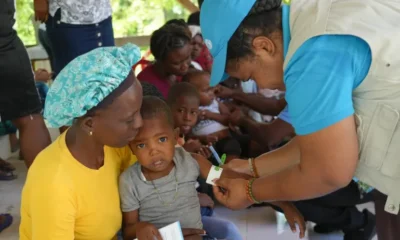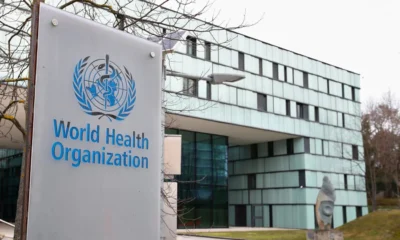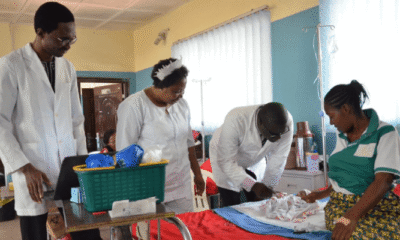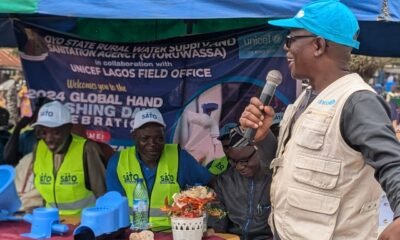News
Stakeholders Alarmed By Unprecedented Upsurge In Cholera
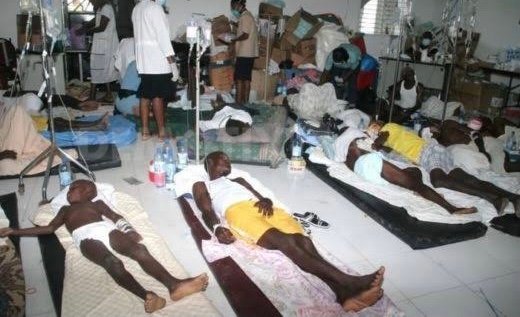
There has been an unprecedented upsurge in cholera cases, an acute, diarrheal illness from which caused by infection of the intestine.
Cholera, is a toxigenic bacterium Vibrio cholera is afflicting an estimated 1.3 to 4 million people around the world and of which 21,000 to 143,000 people die each year, and Nigeria with poor sanitation habits and poor portable water supply is considered at big risk..
According to the Nigerian Centre for Disease Control, reported cases of cholera outbreak in the country early in the year, was 169 cases, with Bayelsa accounting for 144 and Cross River 25.
22 Rapid Diagnostic Tests (RDT) were conducted with 9 positive results covering Bayelsa – 7 and Cross River – 2)
Thus, Bayelsa with 144 cases accounted for 85% of all suspected cases in the country, while Cross River (25 cases), accounted for 15% of the suspected cases this year.
Even as the centre notes comparatively, decrease by 71%, of cholera cases, fears are that the poor sanitation level and lack of quality medicare could spiral the challenges..
READ ALSO: Sugar Diseases’ prevalence: How FG Intends To Fight Beverage Firms
Gavi, a globally known support in the fight against cholera which spoke of the unprecedented upsurge in cholera cases, globally, submitted that infections are being driven by continued gaps in access to safe water and sanitation, and our inability to reach vulnerable communities.
Dwelling on the unpredendented upsurge in cholera cases, Chief Programme Officer at Gavi, the Vaccine Alliance. , Aurélia Nguyen said: “Today’s announcement provides a critical boost in the fight against the disease.
“The rise in infections is being driven by continued gaps in access to safe water and sanitation, and our inability to reach vulnerable communities that are being put further at risk by climate change, conflict and displacement,”
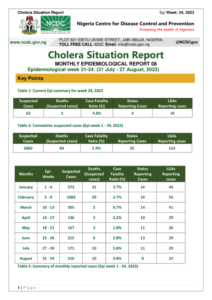 Nguyen added that “Routine use of diagnostics will bolster cholera surveillance in impacted countries, and must be leveraged to better target vaccination efforts, which play a critical role in multisectoral cholera prevention and control programmes.”
Nguyen added that “Routine use of diagnostics will bolster cholera surveillance in impacted countries, and must be leveraged to better target vaccination efforts, which play a critical role in multisectoral cholera prevention and control programmes.”
Echoing the concerns of Nguyen, Leila Pakkala, Director of UNICEF Supply Division. Added that “Surveillance diagnostics help pinpoint hotspots with great precision. This allows partners to target cholera vaccines to exactly the time and place where the limited supply will save the most lives.”
READ ALSO: Carbon Emissions Reduction: Now There’s Every Reason To Shiver
Similarly, Dr Michael Ryan, Executive Director of WHO’s Health Emergencies Programme speaks about the need to act fast in containing the disease, adding: “We need urgent action on all fronts, including commitment by countries to clean water, sanitation and hygiene.
He added: “WHO welcomes the deployment of these rapid cholera tests. They will equip health workers with the critical and timely data needed to stop outbreaks early and direct efforts to better prevent and treat cholera.”

